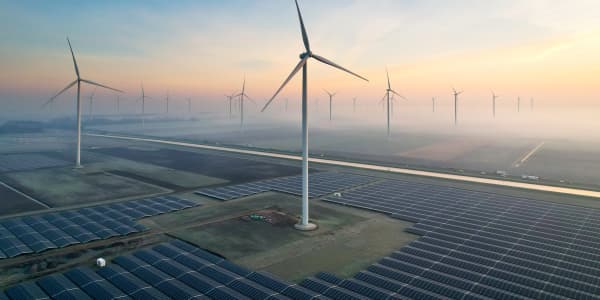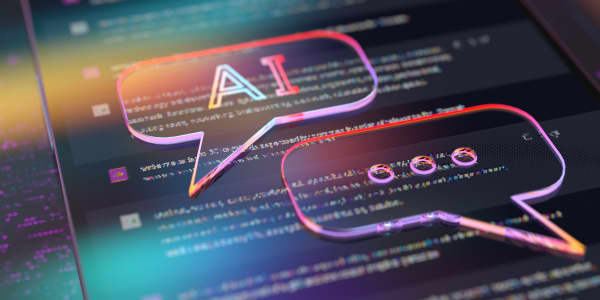Digital technology has become such an integral part of our lives that it's sometimes hard to think of a world where smartphones, virtual assistants and super-fast internet didn't exist.
Here, CNBC takes a look at the real-world impact of smart technology and how it's influencing and shaping our lives on a daily basis.
Robot chefs
The way our favorite dishes are prepared could be on the cusp of a dramatic change.
Take the hamburger. "Autonomous robotic kitchen assistant" Flippy has been designed to work in commercial kitchens alongside human staff.
Using an automatic spatula, it can recognize and monitor items on a grill and turn out hundreds of burger patties per hour.
In July 2018, Flippy was piloted as a "frying assistant" for the Chick 'n Tots stand at the Los Angeles Dodger's Dodger Stadium.
In September, Miso Robotics, the team behind Flippy, announced that the robot would continue to fry food at Dodger Stadium "through the end of the 2018" season.
Self driving taxis
In towns and cities around the world, there are signs that a shift to autonomous forms of transport could slowly but surely develop over the next few years.
In October 2018, Dubai's Roads and Transport Authority unveiled what it described as the region's first autonomous taxi.
The same month also saw the Addison Lee Group enter into a strategic alliance with self-driving software business Oxbotica. The plan is to offer customers self-driving services in London by the year 2021.
Medicine
Artificial intelligence (AI) is starting to play a role in the treatment of serious conditions.
In London, machine-learning technology has been used to identify signs of eye disease and "recommend how patients should be referred for care."
The breakthrough is the result of work by bright minds at London's Moorfields Eye Hospital NHS Foundation Trust, DeepMind Health and University College London's Institute of Ophthalmology.
As part of the study, thousands of historic, de-personalized eye scans were analysed.
In August 2018, Moorfields announced that the AI system was able to recommend the correct referral decision for more than 50 eye diseases with an accuracy of 94 percent.
Crime
In August 2018, London's Metropolitan Police announced it had developed its own mobile fingerprinting device, which it said would save time and money.
The mobile biometric device is called INK (Identity Not Known) Biometrics, the police force said in a statement.
It can scan a suspect's fingerprints and, providing they are on a police database, reveal their identity within 60 seconds.
Travel
Staying on the theme of biometrics, it was announced in July 2018 that a number of Qantas passengers had started to use facial recognition technology at Sydney Airport.
When fully tested, the system will enable passengers to complete most parts of their trip at the airport using their face as their "access identification," according to the airport.
The airport added that the initial phase of the trial would test four key steps of travel: check-in, bag drop, lounge access and boarding.
Takeout
For many of us, a Friday or Saturday night takeout is a traditional and comforting way of unwinding at the end of the week.
Using services like Just Eat and Uber Eats, Seamless and DoorDash, today's consumers use their smartphones to browse the menus of hundreds of local restaurants and, with a few clicks, order their food.
The way in which that food is delivered is also changing. Just Eat, for instance, has been trialing robots for deliveries in cities around the U.K. The self-driving vehicles move at a walking pace and use cameras and sensors to avoid obstacles and reach their destination.
Shopping
In October 2018, U.K. supermarket Waitrose announced a trial of a service that allows grocery deliveries to be made to a customer's house while they are away.
The system uses Yale smart-lock technology to give delivery drivers access to a customer's residence. The customer sets a temporary access code for their lock, which is sent to Waitrose through a secure app.
This code is sent to a driver's device for the time slot the customer has booked their delivery for and deleted when the delivery is complete. A chest-cam worn by the driver records the delivery, with customers able to view the video, upon request, the next working day.
Tech giant Amazon offers a similar service with its Amazon Key delivery system. Using a handheld scanner, delivery drivers can unlock a customer's door to deliver their items.
Food waste
Food waste around the world is a significant problem. Globally, roughly 1.3 billion tonnes of food produced for human consumption is lost or wasted each year, according to the Food and Agriculture Organization of the United Nations.
Businesses such as Winnow, which has offices in the U.K., China, Singapore and the United Arab Emirates, are developing smart tech which enables professional kitchens to monitor and reduce both food waste and costs.
The system developed by Winnow is relatively simple. A scale is placed under a kitchen's bin and connected to a Winnow tablet. With a few touches on the tablet, kitchen staff identify the items they have just disposed of, and then get back to preparing and cooking food.
Banking
The banking sector is changing, and fast. In many countries around the world, the days when checks were written for everything from meals to grocery shopping are fast becoming a thing of the past.
In the U.K., for example, consumers can now pay for goods and services by tapping their smartphones, watches or banking cards on sensors.
This shift is backed by recent figures from U.K. Finance which show that U.K. consumers made 13.2 billion debit card payments in 2017, compared to 13.1 billion cash payments.
That statistic represents the first time that card payments have overtaken cash ones.
Security
In February 2018, the U.K. government announced details of a tool it said could automatically detect terrorist content on any online platform with a high level of accuracy.
Developed by the U.K. Home Office and artificial intelligence firm ASI Data Science, the innovative technology uses "advanced machine learning" to analyze both the visuals and audio of a video.
This enables it to decide whether the content could be propaganda for the so-called Islamic State, also known as ISIS.
The government said that tests had shown that the tool was able to automatically detect 94 percent of ISIS propaganda, with an accuracy of 99.995 percent.




